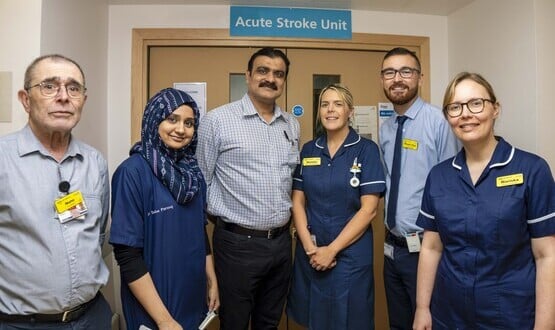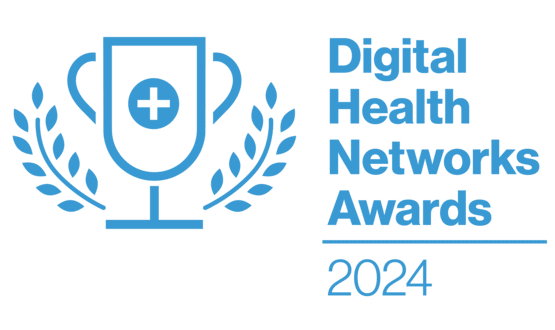Interview: Dr Masood Nazir
- 5 October 2016

Dr Masood Nazir has a top tip for getting clinicians engaged with IT: biscuits.
An email promising “nice biscuits” can make the difference between getting doctors to attend a meeting – or not, he reckons. After all, “everybody likes to feel looked after” and a plate of biscuits shows some effort has been made.
It’s certainly worked for Dr Nazir. Just last week, the Birmingham GP received the CCIO award for clinical IT leadership at the EHI Awards 2016, for his work on the city’s shared care record and the national Patient Online programme.
At this year’s annual CCIO Conference at EHI Live 2016, he will be talking about another passion; the need to get more chief clinical information officers into primary care.
Your Care Connected
Dr Nazir has been a GP for 15 years. “When I was at medical school, we had a computer in the pathology lab, but I don’t remember seeing one anywhere else,” he says.
“I did all my research by reading books in the library. It sounds like ancient history, even though it was the 1990s, so it is very exciting to see how far we have come since then.
“I like looking after patients, and paperwork is a big part of that. So I want to be able to use anything that will make it easier.”
Dr Nazir works at Our Health Partnership in Birmingham; one of the largest ‘super-practices’ in the country, with 150 partners. He is also clinical information lead and senior information risk owner for NHS Birmingham Cross-City Clinical Commissioning Group.
In this role, he is involved with a wide range of IT projects, including Your Care Connected a shared patient record that, after a stutter caused by concerns about information governance and consent, is being rolled out across Birmingham, Sandwell and Solihull.
Your Care Connected pulls information from a variety of GP systems, using the Healthcare Gateway Medical Interoperability Gateway, with the IG handled by data sharing agreements between the data controllers and patient consent to view the record at the point of care.
It contains demographic details and information about allergies, medication, vaccinations and immunisations, diagnoses, hospital admissions and referrals, test results, treatments, medical procedures, end of life wishes, and safeguarding concerns.
It is being accessed by clinicians at seven hospitals, with more services, including the West Midlands Ambulance Service, in the pipeline.
“As a local GP, it makes absolute sense to me that my patients’ medical information can be shared in real-time, where relevant and appropriate, and with their consent, to directly improve the care they receive when visiting hospital,” Dr Nazir told Digital Health News when the roll-out was announced.
“By giving local colleagues the information they need when they need it most, we can all work together to provide better, safer care for our patients.”
Patient Online
Dr Nazir is bringing the same enthusiasm to the national Patient Online programme, for which he is national clinical lead.
This is an NHS England programme to help GPs deliver the government’s promise to give patients access to their GP records and to let them book appointments and order prescriptions online.
The key target, to get 95% of practices into a position to offer these services to patients, was met in March 2015, and there are clauses in the latest GP contact to encourage take-up.
But Dr Nazir says contractual commitments can only go so far, and the programme has put a lot of effort into talking to CCGs, local medical committees, individual practices, and anyone else with influence to persuade them of the case.
“GPs were very cynical about this, because it was made a contractual thing,” he says, “but now we have got to the point where people are saying ‘ok, we want to do this, but can you help us?’”
Practices are most likely to see the advantages of offering prescription services online, he says. Appointment booking is a bit harder and access to records is “much harder” because there are real issues with making sure that no inappropriate information is revealed.
The programme has been working with organisations such as the Information Commissioners Office, the Royal College of GPs, and the BMA (among others) to draw up policies and procedures.
“The RCGP has been great. It has put all the guidance on its website, and there is a generic form that covers what information to give to patients. So that is in place, and we are working to make sure that people know about it and use it,” Dr Nazir says.
Today GP records, tomorrow…
Patients are catching on. After his interview, Dr Nazir sends over figures indicating that 9 million patients are now registered for online services, and that 1.4 million prescriptions and 1.2 million appointments are being booked each month; an increase of 70% on 12 months ago.
The government’s next target is to have 50% of practices having 10% of their patients going online regularly to use one of the three services available. At the moment, about 15% of patients are using online services; which is “reaching critical mass.”
Meantime, Dr Nazir reveals that talks are underway on how to give patients access to more records and more services. “The GP has the most complete record, so it made sense to start there,” he says.
“But other services have developed their own portals, and it would make sense to try and provide federated access to them; so patients in my surgery, for example, could access the hospital portal, using a single identity.”
After all, he points out, to patients the NHS is the NHS. It won’t make much sense to them to communicate with their GP using one portal or set of details and the hospital using a different portal or set of details; particularly about the same condition or block of treatment.
Primary care needs CCIOs
Bringing this kind of GP – and patient – perspective to IT projects is vital, Dr Nazir argues, and its why “every CCG should have a clinical lead for IT: a CCIO.”
Digital Health has championed the CCIO role and hosts the CCIO Network to encourage more clinicians to think of a career in healthcare informatics; but relatively few CCIOs come from primary care or commissioning backgrounds.
Dr Nazir says the word ‘officer’ has been a bit of a stumbling block for CCGs, and ‘clinical lead for IT’ might be preferable; but the point is to get people in post, and to make sure the job is not just tacked onto someone else’s job, such as the finance director. “You need somebody who cares,” he says.
CCIOs are needed to “align” the Sustainability and Transformation Plans that local healthcare economies are drawing up to take forward the ‘Five Year Forward View’ with the Local Digital Roadmaps that CCGs were asked to prepare to implement the ‘Personalised Health and Care 2020’ strategy.
They are needed to drive forward local digital strategies and to persuade people of their value. “What I want to do is to support people so they recognise they have the skills to do these things,” Dr Nazir says.
“I came into this role from being a clinician, via working on the NHS Summary Care Record many years ago, because I wanted to help clinicians with IT, so they could help their patients.
“If I can do it, then other people can. It is just about giving them confidence, and telling them that, with their input, we can make sure that the right decisions are made.”
All about pulling together
The Wachter Review of NHS IT, which was published at the Health and Social Care Expo in Manchester last month, gave a big push to the CCIO role. It called for many more CCIOs to be appointed, with teams to support them. But it was solidly focused on the acute sector.
Dr Nazir thinks it will drive the development of CCIOs in primary care anyway because, as hospital CCIOs are appointed, they will look for colleagues to work with on the big data and integration agendas implicit in the STPs and LDRs.
“Locally, all the CCIOs from the four CCGs [in Birmingham] and the acute trusts meet up and that works really well,” he says, echoing something that he also said at the awards, which is that working as a CCIO in primary care is “all about bringing people together” and “showing people what can be achieved together.”
Just remember the biscuits.





